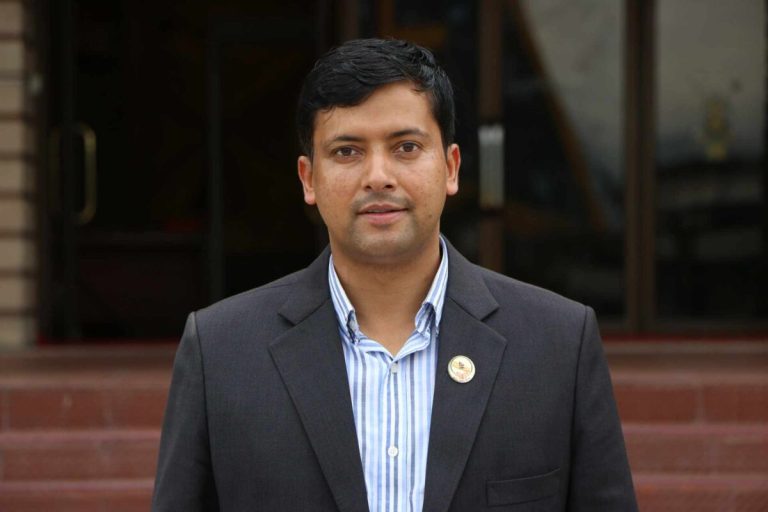CPN-UML Chief Whip Mahesh Bartaula has publicly advised Meghraj Pokharel to reconsider his candidacy for the position of Supreme Court justice. Speaking at a recent parliamentary hearing, Bartaula raised doubts about Pokharel’s background and questioned his ability to remain unbiased in a judicial role.
Bartaula pointed to Pokharel’s prior involvement in political activities and his ties to business groups. According to Bartaula, these past connections could raise doubts about Pokharel’s ability to act independently and uphold judicial integrity. He noted that someone with such associations may find it difficult to remain neutral, especially in cases involving powerful or influential parties.
The main concern, Bartaula said, is the influence of business interests. Pokharel’s former role as a board member of a commercial bank was brought up as an example. Bartaula questioned whether Pokharel, shaped by a career involving corporate leadership, could distance himself from commercial pressures once appointed to the court.
He emphasized that the justice system demands complete impartiality. A judge must rise above politics, business interests, and personal bias. According to Bartaula, public trust in the judiciary depends on this standard.
Bartaula also reminded the hearing of Pokharel’s earlier criticism of Acting Chief Justice Hari Krishna Karki. This, he argued, brought into question Pokharel’s consistency and seriousness about legal ethics. If Pokharel questioned the integrity of a sitting chief justice in the past, Bartaula asked, how could the public now place full confidence in him?
“This is my personal suggestion—withdraw from the process,” Bartaula said during the hearing.
His words were seen as a strong indication that certain political circles are uncomfortable with Pokharel’s nomination. However, Bartaula clarified that his suggestion was not an official party stance but a personal recommendation based on concern for the judiciary’s reputation.
Pokharel responded calmly to the criticism. He stated that if confirmed for the position, he would fully cut off any remaining political ties. He assured the committee that he respects the responsibility of the judiciary and understands the importance of being impartial and independent.
According to Pokharel, his previous roles, including the bank board position, were part of his broader professional experience and would not affect his fairness as a judge. He stressed that he is committed to upholding the values of justice, transparency, and equal treatment under the law.
The hearing committee has yet to make a final decision regarding Pokharel’s nomination. However, Bartaula’s comments have added a new layer of public scrutiny to the process. Legal experts and members of civil society are now watching closely to see whether the concerns raised will impact the outcome.
This situation has sparked wider discussion about the criteria for appointing judges in Nepal. Many are asking whether more stringent checks should be introduced to ensure that only those free from political and corporate links are considered for judicial roles. Transparency, independence, and public trust are now central to the debate.
Some members of the legal community agree with Bartaula’s concerns, stating that even the appearance of bias can damage the judiciary’s image. Others argue that professional experience in various fields—including politics and business—should not automatically disqualify a candidate. What matters, they say, is whether the individual can act fairly and independently while on the bench.
The discussion also reflects growing public awareness of judicial accountability in Nepal. Citizens increasingly demand that justices be selected not only based on qualifications but also on personal ethics and background. With rising media coverage, the selection process has become more transparent and open to public debate than in past years.
As of now, Pokharel’s nomination remains pending. The committee’s decision in the coming days will likely set a tone for future nominations. Whether they choose to accept or reject him, the choice will carry significant weight for how judicial integrity is perceived across the country.
In the meantime, Pokharel has reiterated his willingness to fully serve the nation’s legal system if approved. He has promised to act without bias and to represent the law and the Constitution above all else.


